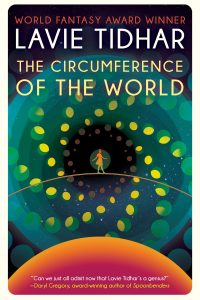Amy Goldschlager Reviews The Fever King Audiobook by Victoria Lee
 The Fever King, Victoria Lee; Michael Crouch, narrator (Brilliance Audio 978-1-7213-3626-5, 11 CDs, $26.99, 14 hr., unabridged [also available on MP3-CD and as a digital download]) March 2019.
The Fever King, Victoria Lee; Michael Crouch, narrator (Brilliance Audio 978-1-7213-3626-5, 11 CDs, $26.99, 14 hr., unabridged [also available on MP3-CD and as a digital download]) March 2019.
The early 21st century of an alternate Earth becomes infected by magic, a plague which kills most but leaves the survivors with powers. The dangerous disease and violent prejudice against the surviving “witchings” splinters the US. The most powerful witching, Calix Lehrer, takes over some of the Southern states for his own, and declares himself king of the nation of Carolinia. A century later, the magic virus continues to devastate the world. Lehrer, whose magic has kept him in a vigorous middle age, has stepped down as king and now serves as defense minister in a purportedly “democratic” country headed by Chancellor Sacha, who distrusts witchings and has a repressive policy toward refugees from the neighboring nation of Atlantia. Noam Álvaro, the son of two Atlantian refugees, loses his father to the virus but himself emerges from the illness with the powers of a technopath, able to influence computers and other electronic devices with his mind. His new abilities draft him into an elite military training unit and bring him to Lehrer’s attention. Lehrer not only becomes a devoted mentor, but encourages Noam to join him in plotting a coup to topple the prime minister. Noam loathes Sacha for his treatment of the Atlantians, so it’s fairly easy to recruit him to this dangerous scheme – but Noam is also falling in love with Lehrer’s wild, sullen, and amazingly attractive adopted son, Dara Shirazi, who keeps hinting to Noam that Lehrer isn’t to be trusted. All of Noah’s carefully honed street smarts may not be enough to navigate this tangled web of high-level politics without becoming trapped within its deadly strands.
Narrator Michael Crouch has a fine sense of dramatic tension for the many action scenes, but also makes some questionable vocal choices. He gives Lehrer a pronounced German accent with very little justification for it; true, he is the grandchild of German Jews, and he and his brother Adalwolf have strongly German names, but he was born in the United States, and it’s implied that his parents were also born in the US. Perhaps the accent is meant to accentuate his outsider role as an ancient witching, the only one who remembers the original US. If that’s the case, then the narrator missed a step with Noam, who takes pains to accentuate his own outsider status. He is also Jewish and Latinx; if Lehrer gets a German accent, why couldn’t Noam have a slight Spanish one? Instead, he has a pronounced Southern accent and nothing else. Sure, both Atlantia and Carolinia consist of Southern states from the old US, but a really thoughtful take on Noam might have incorporated some code-switching, heightening a Spanish or a Southern accent depending on the situation.
I am uncertain if author Victoria Lee has more than a surface-level knowledge of Judaism; references to holidays and prayers are occasionally dropped in awkwardly, as if to remind us that Noam is Jewish. Lee makes the odd claim that everyone hates charoset, the traditional (and delicious, especially when my mother makes it) mix of apples, nuts, and wine served at the Passover ritual meal. (She’s on much more solid ground when she suggests a dislike for gefilte fish, which is slimy and nasty.) For his part, Crouch clearly didn’t consult any Jews in preparing his narration; it’s cha-RO-set, not HA-ro-set. He also pronounces the Hebrew word for Passover, “Pesach,” as “Puh-SAHK” instead of “PAY-sach.” As a result, the narration somewhat undercuts Noam’s authenticity.
On the whole, I enjoyed this first installment of the Feverwake series: I love a world in which magic and technology not only both work, but can be integrated. There’s tortured romance, a pleasingly grim political undercurrent, and a realistic if obvious take on contemporary issues of immigration. We also need more novels in which a protagonist’s bisexuality is treated positively but casually, as part of character rather than to communicate some kind of message. Unfortunately, the narrator doesn’t quite keep up with the author’s level of characterization. I might choose to read, rather than listen to, future books in the series.
This review and more like it in the July 2019 issue of Locus.
 While you are here, please take a moment to support Locus with a one-time or recurring donation. We rely on reader donations to keep the magazine and site going, and would like to keep the site paywall free, but WE NEED YOUR FINANCIAL SUPPORT to continue quality coverage of the science fiction and fantasy field.
While you are here, please take a moment to support Locus with a one-time or recurring donation. We rely on reader donations to keep the magazine and site going, and would like to keep the site paywall free, but WE NEED YOUR FINANCIAL SUPPORT to continue quality coverage of the science fiction and fantasy field.






